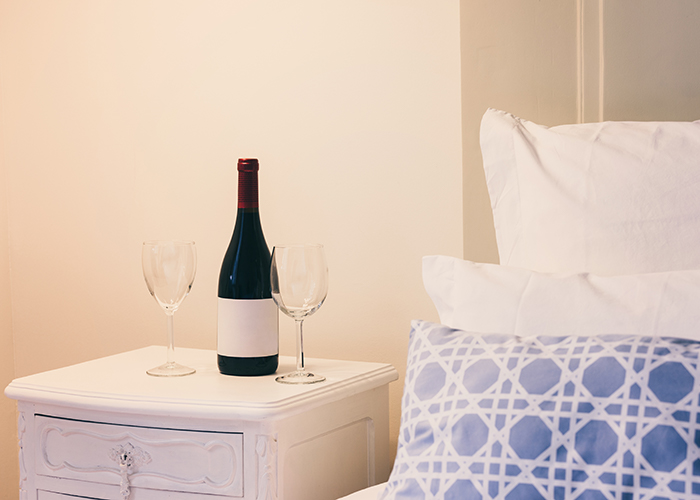The majority of adults enjoy a nightcap from time to time. Whether a glass of red wine while watching a movie or a small aperitif in order to aid in digestion, these habits have become representative of our modern culture.
Unfortunately, some individuals become reliant upon alcohol in order to get a sound night of sleep. A recent study found that up to 63 percent of all Americans depend upon some form of self-medication, alcohol being one, to fall asleep on a regular basis.
This is particularly concerning for those who have been diagnosed with obstructive sleep apnea (OSA), as the condition itself can be dramatically worsened with alcohol. Let’s look at how alcohol impacts breathing, sleeping and snoring during the overnight hours– and why it might be best to abstain from a nightcap.
How Does Alcohol Affect Sleep?
You are likely already aware that alcoholic drinks can have a sedating and calming effect. This is normally associated with mental benefits such as the ability to calm down after a stressful day. While this may be true, it is important to note that alcoholic drinks exert a physical influence over the body for certain functions.
As this article from the American Journal of Managed Care (AJMC) highlights, consuming too many alcoholic beverages before bed can cause the respiratory system to collapse and the walls surrounding the oropharynx to narrow significantly. This is why many who drink to excess will snore loudly during the overnight hours, but if airway narrows completely it become an apnea, not just snoring.
Another important point — this chemical can lower the quality of sleep. Although many people fall asleep faster after a nightcap or two, the fact of the matter is that the quality of sleep suffers as a result. Namely, alcoholic substances reduce the amount of REM sleep that is obtained.
This is very unhealthy, since this “deep” sleep stage is crucial in terms of both mental and physical recovery from the previous day’s events. This is also the main reason why even those who obtain sleep through the use of alcohol will rarely feel rested upon waking.
Here are some other significant effects of poor sleeping habits over time:
- A lower metabolism which leads to weight gain
- Feelings of anxiety, malaise and even depression
- An increased risk of developing Type 2 diabetes
- Increased risk of being involved in a car accident
- Poor concentration and a lack of attention to detail
How Alcohol Can Worsen OSA
Alcohol can cause physical and mental relaxation as well as affect how the respiratory system functions during the overnight hours. This is why those who tend to drink in the evening are more likely to snore. However, did you know that alcoholic beverages can actually cause episodes of OSA in those who do not even suffer from this condition?
The main link between OSA and alcoholic beverages involves the physical effects that this chemical has upon your respiratory system. It will cause the time between interrupted breathing sessions to lengthen. As a result, the levels of saturated oxygen in the bloodstream will become even lower.
Not only can alcohol increase the likelihood that your upper airways will collapse while sleeping, but it markedly slows down your breathing pace and causes each breath to become shallower.
Professional Suggestions to Keep in Mind
If you find it difficult to completely eliminate alcoholic beverages from your lifestyle, there are still some ways in which you can help to mitigate its overall effects. Here are a handful of expert tips:
- Make it a point to stop drinking at least three hours before you plan on retiring to bed.
- Try to adopt a normal sleeping schedule and avoid staying up too late.
- Remember to hydrate. Consuming one glass of water per alcoholic beverage will help you to avoid dehydration during the overnight hours.
- Drink in moderation.
Do you regularly consume alcoholic beverages before falling asleep? If so, make it a priority to speak with your doctor or a sleep specialist to determine if it’s impacting your health and find a better option. If OSA is a concern, it is easy to test at home, and OSA can be effectively treated with lifestyle changes or the use of modern equipment such as a CPAP (continuous positive airway pressure) therapy. Although most of us enjoy a nightcap from time to time, there are still some profound health risks which cannot be ignored.
Sources:
https://www.ajmc.com/view/alcohol-consumption-linked-with-worsening-severity-of-snoring-sleep-apnea
https://www.verywellhealth.com/how-alcohol-affects-sleep-apnea-3014680
https://www.webmd.com/sleep-disorders/features/nix-nightcap-better-sleep
https://aasm.org/rising-prevalence-of-sleep-apnea-in-u-s-threatens-public-health/
